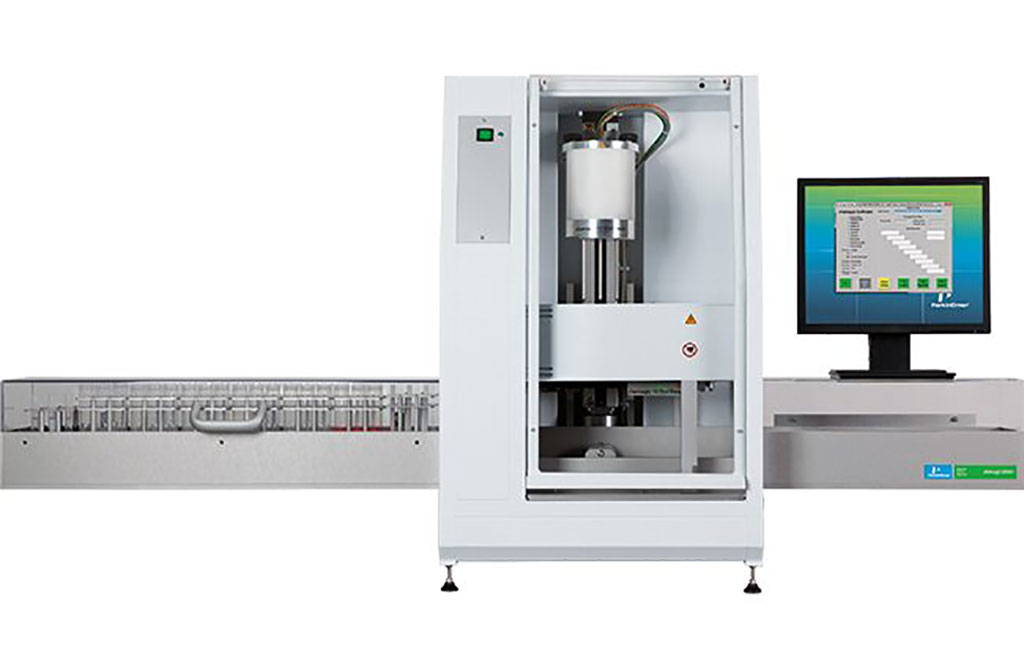Inherited Cancer Risk Detected in Significant Subset of Wilms Tumor Cases
Posted on 08 Mar 2022
Wilms tumor is a rare kidney cancer that affects children. It causes abdominal pain, swelling and mass in abdomen, blood in urine, fever, nausea and vomiting, difficulty in breathing, high blood pressure, loss of appetite and constipation.
Roughly one in every three children with a type of kidney cancer known as Wilms tumor (WT), or nephroblastoma, carry germline alterations implicated in hereditary cancer risk. It is associated with (epi)genetic predisposing factors affecting a growing number of WT predisposing genes and loci, including those causing Beckwith-Wiedemann spectrum (BWSp) or WT1-related syndromes.

A team of Pediatric Oncologists led by those at the Princess Máxima Center for Pediatric Oncology (Utrecht, the Netherlands) analyzed genetic and epigenetic features in 126 children treated for Wilms tumor in the Netherlands from 2015 to 2020 using targeted diagnostic testing; tests for chromosome 11 genetic or DNA methylation changes linked to a Wilms tumor-related overgrowth syndrome called Beckwith-Wiedemann spectrum; or parent-child germline exome sequencing.
Germline DNA was extracted from peripheral blood lymphocytes using magnetic bead based DNA isolation on a Chemagic MSM-I Instrument (PerkinElmer Chemagen Technologie GmbH, Baesweiler, Germany) and in some cases from saliva collected using Oragene-DNA self-collection kits (DNA Genotek Inc., Ottawa, ON, Canada). Patients' germline DNA was assessed using a whole exome sequencing (WES)-based 30-gene WT gene panel, including single-nucleotide variant, small indel, and copy number analyses. If no causative variant was identified after panel analysis, exome-wide (trio-) analysis was performed using the patients' and (if available) parents' DNA. WES was performed using Illumina NovaSeq sequencing platforms (Illumina Inc., San Diego, CA, USA).
Variants were filtered on the basis of population frequency (gnomAD v3.1.1), quality metrics, protein effect, and in silico conservation and prediction scores. For genes included in the WT gene panel, only (likely) pathogenic variants were communicated with the families. When variants of unknown significance were identified in the gene panel, tumor tissue (if available) was assessed by WES and/or single-nucleotide polymorphism array analysis for loss of heterozygosity (LOH) or somatic variants in this gene.
The scientists reported that a total of 126 cases were analyzed of 128 identified patients. (Epi)genetic predisposing factors were present in 42/126 patients (33.3%) on the basis of a molecular diagnosis in blood-derived DNA (n = 26), normal kidney-derived DNA (n = 12), or solely a clinical diagnosis of BWSp (n = 4). Constitutional, heterozygous DIS3L2 variants were identified as a recurrent predisposing factor in five patients (4%), with a second somatic hit in 4/5 tumors. Twenty patients (16%) were diagnosed with BWSp while four additional patients without BWSp features harbored chromosome 11p15 methylation defects in normal kidney tissue.
Janna Hol, MD, a Pediatric Oncologist and co-first author of the study, said, “Sometimes the predisposition is only found in kidney tissue, and not in blood. Then we know that siblings do not have an increased risk of developing a Wilms tumor. If the hereditary predisposition does come from one or both parents, siblings can get a genetic test. They are then screened extra carefully.”
The authors concluded that (epi)genetic WT predisposing factors, including mosaic aberrations and recurrent heterozygous DIS3L2 variants, were present in at least 33.3% of patients with WT. On the basis of these results, they encourage standard genetic testing after counseling by a clinical geneticist. The study was published on March 1 2022 in the Journal of Clinical Oncology.
Related Links:
Princess Máxima Center for Pediatric Oncology
PerkinElmer Chemagen Technologie GmbH
DNA Genotek Inc
Illumina Inc














